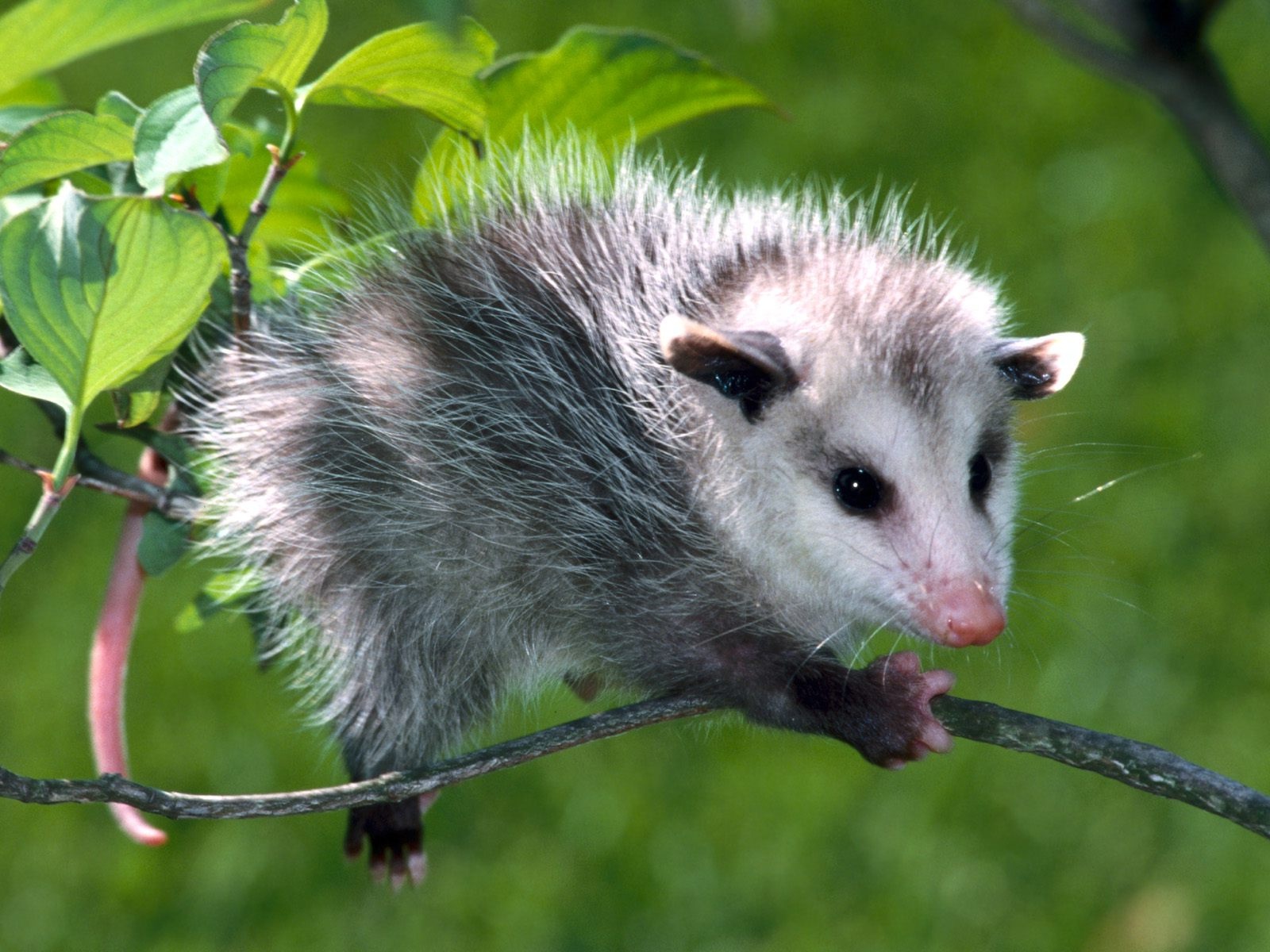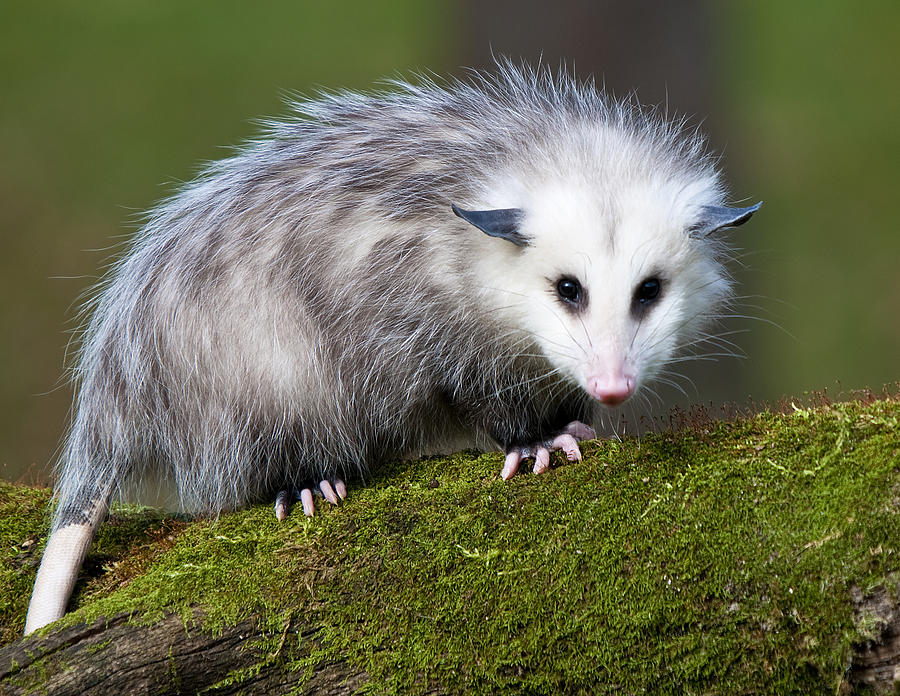Introduction to Opossums
Opossums, often misunderstood creatures, are North America's only marsupials. These nocturnal animals have adapted to various environments, from forests to urban areas. Known for their unique appearance and behaviors, opossums play a crucial role in our ecosystem. Their presence helps control insect populations and they also consume carrion, thus keeping our environment clean. Despite their benefits, opossums often receive unwarranted bad press due to myths and misconceptions. This article aims to shed light on these fascinating creatures, providing insights into their lifestyles, behaviors, and the importance of their conservation.
The Unique Anatomy of Opossums
Opossums possess several distinct anatomical features that set them apart from other mammals. One of the most noticeable is their prehensile tail, which functions almost like a fifth limb, aiding in climbing and balance. Additionally, opossums have opposable thumbs on their hind feet, further enhancing their climbing abilities. Their fur is coarse and typically grayish, with a white face and a long snout adorned with whiskers. These creatures also have an impressive number of teeth, 50 in total, which is more than any other North American mammal. Understanding their anatomy helps us appreciate their adaptability and survival skills.
Behavioral Traits of Opossums
Opossums exhibit a range of interesting behaviors that are worth noting. One of their most famous defense mechanisms is "playing possum," where they feign death to avoid predation. During this state, they emit a foul odor, convincing predators that they are already deceased and thus, an undesirable meal. Opossums are also solitary creatures, preferring to roam and forage alone. They are primarily nocturnal, venturing out at night to search for food. This behavior not only helps them avoid predators but also reduces competition with other animals. Understanding these behaviors can help us coexist peacefully with these beneficial creatures.
Opossums and Their Role in the Ecosystem
Opossums play a vital role in maintaining the balance of their ecosystems. They consume a wide range of foods, including insects, rodents, and fruits, helping to control pest populations. Their diet also includes carrion, which aids in the natural cleaning process of their habitats. By consuming dead animals, opossums help prevent the spread of diseases and reduce the risk of larger predator encounters. This scavenging behavior makes them an invaluable part of the ecological community. By appreciating their role, we can better understand the importance of conserving opossum populations in our rapidly changing world.
Common Misconceptions About Opossums
Despite their ecological benefits, opossums are often misunderstood and unfairly judged. One common misconception is that they are aggressive and pose a threat to humans. In reality, opossums are shy and non-aggressive, preferring to flee rather than fight. They are also mistakenly thought to be rabid, but opossums have a remarkably low body temperature, which makes it difficult for the rabies virus to survive. Additionally, their scavenging habits lead some to believe they are dirty, but their dietary habits actually help clean up their environments. Dispelling these myths is crucial for fostering a more positive perception of opossums.
Opossums in Urban Environments
As urbanization continues to expand, opossums have adapted to city life, often seen rummaging through trash or crossing roads at night. While some view their presence in urban areas as a nuisance, opossums contribute positively by controlling pests such as cockroaches and rats. Their adaptability to urban environments is a testament to their resilience and intelligence. However, their foraging habits can sometimes lead to conflicts with humans. Educating communities about opossums' benefits and encouraging humane coexistence strategies can help reduce negative interactions and promote urban biodiversity.
Conservation Efforts for Opossums
Although opossums are not currently endangered, they face threats from habitat loss, road mortality, and climate change. Conservation efforts are essential to ensure their populations remain stable. Protecting natural habitats and creating wildlife corridors can help mitigate the impact of urban development. Additionally, educating the public about the ecological benefits of opossums and promoting humane wildlife management practices can foster coexistence. Local wildlife organizations often provide resources and support for those interested in contributing to opossum conservation. By participating in these efforts, we can help safeguard the future of these unique creatures.
How to Attract Opossums to Your Garden
If you're interested in attracting opossums to your garden, there are several steps you can take. Providing a welcoming environment with dense shrubbery or brush piles can offer shelter and safety. Planting native fruit-bearing plants or leaving out small amounts of food can entice opossums to visit. It's also important to ensure that any food offered is healthy and does not encourage dependency. Remember to keep pet food and trash secure to avoid attracting other wildlife. By creating a suitable habitat, you can enjoy the benefits of having opossums as natural pest controllers in your garden.
Observing Opossums in the Wild
Observing opossums in their natural habitat can be a rewarding experience. These animals are most active at night, so consider taking a quiet walk in nature during the evening or early morning hours. Look for signs of their presence, such as tracks, scat, or partially eaten fruits. Always maintain a respectful distance and avoid disturbing their activities. Using a red-filtered flashlight can minimize stress and provide a better viewing experience. Remember, patience and quiet observation are key to witnessing these fascinating creatures in action. By appreciating their natural behaviors, we can deepen our understanding of their ecological role.
Conclusion: Embracing the Opossum's Role in Nature
In conclusion, opossums are remarkable creatures that deserve our respect and appreciation. Their unique adaptations, beneficial behaviors, and ecological contributions make them an integral part of the natural world. By dispelling myths and fostering understanding, we can improve our relationship with these often-misunderstood animals. Encouraging conservation efforts and promoting coexistence in urban environments will be crucial as we move forward into 2024 and beyond. Let's embrace the opossum's role in nature and work together to ensure their continued presence in our ecosystems.
You Might Also Like
Exploring The Iconic Legacy Of Jack Nicholson: A 2024 ReviewDustin Diamond: A Comprehensive Look At The Life And Legacy Of A Pop Culture Icon
Discovering The Fascinating World Of Opossums: A 2024 Guide
Understanding Angel Hernandez: A Comprehensive Look In 2024
Exploring The Journey Of Austin Rivers: A Comprehensive Guide
Article Recommendations
- Le Glue Net Worth 2024 Insights Into Success And Innovation
- All About Nicolette Scorsese From Hollywood Stardom To Personal Life
- Kat Timpfs Husband Meet Husbands Name

